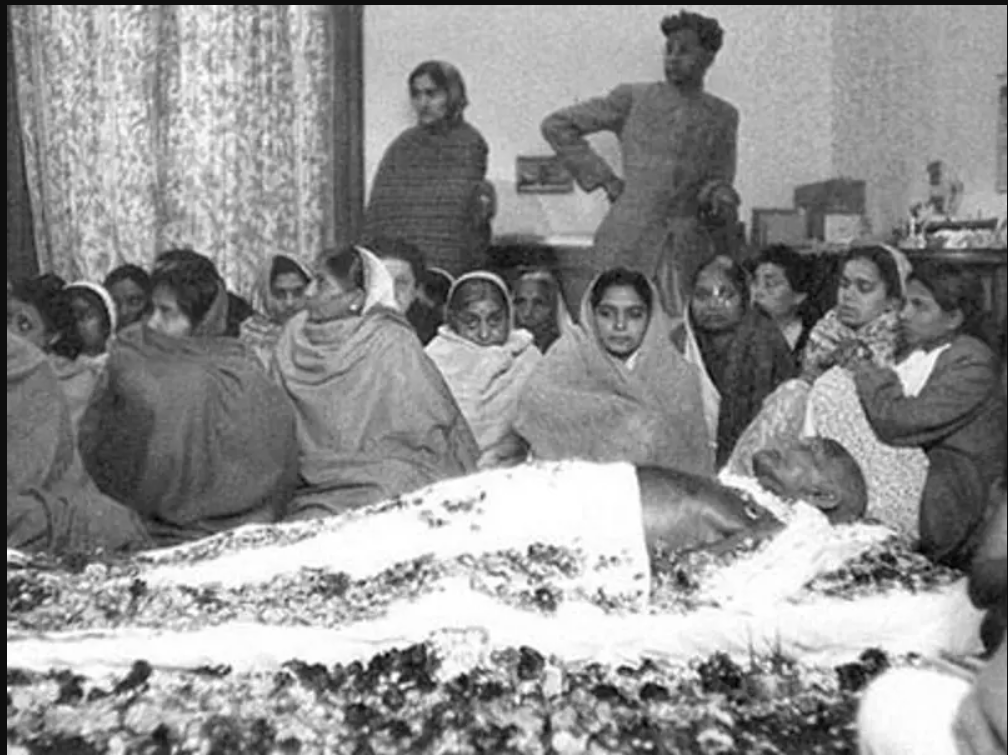Description
_ACT_2013.png)
Copyright infringement not intended
Context: Half of India's national sports federations don't have a sexual harassment panel, as required by the Sexual Harassment of Women at Workplace (Prevention, Prohibition, and Redressal) Act, 2013, which requires every organisation with more than 10 employees to have an internal complaints committee (ICC) to deal with sexual harassment cases.
Details
- According to a study, half of India's national sports federations do not have a sexual harassment tribunal as the law requires.
- This violates the Sexual Harassment of Women at Workplace (Prevention, Prohibition, and Redressal) Act of 2013, which requires every firm with more than ten workers to create an internal complaints commission (ICC) to handle sexual harassment allegations.
.jpeg)
Sexual Harassment of Women at Workplace (Prevention, Prohibition, and Redressal) Act of 2013
About
- The Sexual Harassment of Women at Workplace (Prevention, Prohibition, and Redressal) Act, often known as the PoSH Act, was passed in 2013.
- The Act defines sexual harassment as any unwelcome act or behaviour (whether directly or by implication) such as;
- Physical contact and advances
- A demand or request for sexual favours
- Making sexually coloured remarks
- Showing pornography
- Any other unwelcome physical, verbal or non-verbal conduct of sexual nature.
- The Act provides a mechanism for the prevention, prohibition, and redressal of complaints of sexual harassment in the workplace.
Background
- The 2013 law expanded and legitimised the Vishaka Guidelines, which were established by the Supreme Court in a 1997 decision.
- The Vishaka Guidelines defined sexual harassment and imposed on institutions three key obligations: prohibition, prevention, and reparation.
- The Supreme Court ordered that a Complaints Committee be formed to investigate allegations of sexual harassment of women in the workplace.
- The guidelines were made legally binding by the court.
_ACT_2013_1.png)
Key Provisions of the Act
Wide Coverage
- The Act covers both organised and unorganised sectors, and applies to all women, irrespective of their age or employment status.
- Domestic workers, students, research scholars, patients, customers, clients, and tourists are also included.
- Offices, factories, stores, hotels, restaurants, educational institutions, hospitals, sports facilities, transportation services, entertainment venues, and houses are all covered by the Act.
Internal Complaints Committee (ICC)
- Every employer is required to constitute an Internal Complaints Committee (ICC) at each office or branch with 10 or more employees.
- At least one-half of the members of the ICC should be women.
- The ICC is made up of a presiding officer (a senior woman employee), two other workers (ideally committed to women's rights), and one external member (from an NGO or legal background).
- The ICC is in charge of receiving and investigating complaints of sexual harassment from female employees and proposing appropriate action to the employer.
Local Complaints Committee (LCC)
- The Act also provides for the constitution of a Local Complaints Committee (LCC) by the District Officer for cases where the complaint is against the employer or where the workplace has less than 10 workers.
- According to law, a Company having more than 10 employees is mandated to constitute an Internal Complaints Committee (ICC).
- For a company having less than 10 employees, it is not mandatory to have ICC.
- Any woman who has been subjected to sexual harassment at the workplace can file a complaint within 3 months of the incident or series of incidents to the ICC or LCC, as applicable.
- The LCC has the same powers and functions as the ICC.
Responsibilities of the Employer
- To provide a safe working environment for women.
- Display the penal consequences of sexual harassment.
- Organize awareness programs and workshops.
- Assist the complainant if she chooses to file a criminal case against the respondent.
Investigation and Action
- The ICC or LCC is required to complete the inquiry into the complaint within 90 days and submit a report with its recommendations to the employer or district officer.
- The employer or district officer is required to take action on the recommendations of the ICC or LCC within 60 days and inform the complainant and respondent about it.
Protection against false Complaints
- The Act provides for penalties for false or malicious complaints, non-compliance with the provisions of the Act by the employer or ICC or LCC members, and victimization or retaliation against the complainant or witness.
_ACT_2013_2.png)
Challenges with the Act
Lack of coverage
- The act does not cover women working in the agricultural sector and armed forces. These are largely male-dominated sectors where women face a high risk of sexual harassment.
- The act does not address sexual harassment faced by men, transgender, and transsexual individuals, who also face discrimination and violence at their workplaces.
Lack of awareness
- Many women are unaware of their rights and remedies under the act. They may not know how to file a complaint, what constitutes sexual harassment, or what support they can get from their employers or ICCs.
- Many employers are also ignorant or indifferent about their obligations under the act. They may not have set up ICCs, conducted awareness programs, or taken preventive measures to ensure a safe working environment for women.
Lack of implementation
- Even when ICCs are set up, they may not function effectively due to various reasons. Some of these reasons are;
- Lack of training, expertise, resources, independence, or impartiality of the ICC members.
- Delay or denial of justice; victim-blaming or shaming.
- Pressure or intimidation from the accused or management.
- Lack of confidentiality or protection for the complainant.
- Lack of monitoring or accountability of the ICCs.
Lack of Support
- Women who report sexual harassment often face various challenges such as social stigma, retaliation, loss of reputation, career opportunities, income, or job security.
- They may also suffer from psychological trauma, stress, anxiety, depression, or suicidal tendencies.
- They may not receive adequate support from their family, friends, colleagues, superiors, or legal system.
- They may also face difficulties in accessing medical, legal, financial, or counselling services.

Steps need to be taken
Extend coverage
- The act should be amended to include women working in the agricultural sector and armed forces.
- It should also be made gender-neutral to protect all individuals from sexual harassment at the workplace regardless of their sex or gender identity.
Increase awareness
- The government should launch campaigns and programs to educate and sensitize the public about sexual harassment in the workplace and its consequences.
- The employers should conduct regular workshops and training for their employees and ICC members on the provisions and procedures of the act.
- The media should also play a positive role in highlighting the issue and creating a culture of zero tolerance towards sexual harassment.
Strengthen implementation
- The government should ensure that all organizations comply with the act and set up ICCs as per the guidelines.
- The ICCs should be given adequate training, resources, autonomy, and authority to handle complaints effectively and efficiently.
- The ICCs should also follow a time-bound process and ensure fair and impartial investigation and redressal of complaints.
- The government should also monitor and evaluate the performance and outcomes of the ICCs and take appropriate action against any non-compliance or violation of the act.
Provide Support
- The government should provide legal aid and assistance to women who file complaints under the act.
- The employers should provide protection and support to the complainant during and after the complaint process.
- They should also ensure that there is no adverse impact on the complainant's career or livelihood due to reporting sexual harassment.
- The government should also facilitate access to medical, legal, financial, or counselling services for women who face sexual harassment in the workplace.
Conclusion
- Sexual harassment of women in the workplace is a violation of human rights and dignity. It affects not only the individual but also the organization and society at large. The Sexual Harassment of Women at Workplace (Prevention, Prohibition, and Redressal) Act 2013 is a progressive law that aims to prevent and redress sexual harassment in the workplace. However, many challenges hamper its effective implementation. These challenges need to be addressed urgently by all stakeholders through collective efforts and actions. Only then can we create a safe, respectful, and equitable workplace for all.
Must Read Articles:
Sexual Harassment: https://www.iasgyan.in/daily-current-affairs/sexual-harassment
|
PRACTICE QUESTION
Q. How effective is the Sexual Harassment of Women at Workplace (Prevention, Prohibition, and Redressal) Act of 2013 in addressing the issue of workplace harassment in India? What are the main features, challenges and way forward for this legislation?
|

https://indianexpress.com/article/explained/explained-law/posh-act-sexual-harassment-workplace-8591018/




_ACT_2013.png)
_ACT_2013.png)
_ACT_2013_1.png)
_ACT_2013_2.png)








